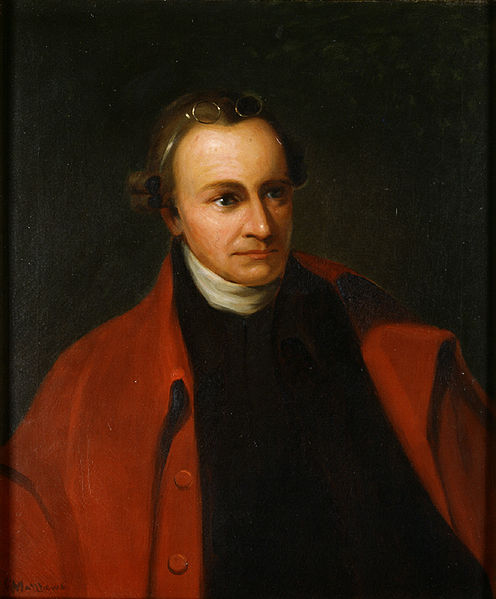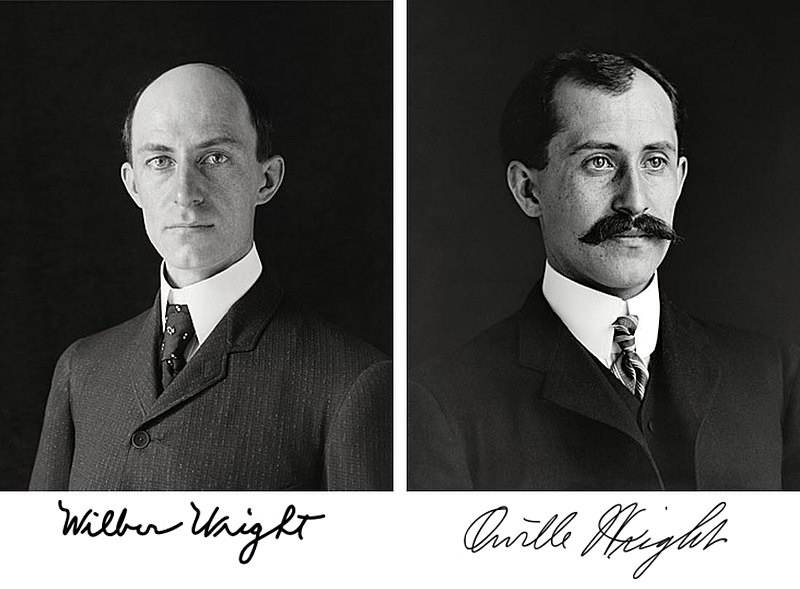March 23rd marks a day rich in history, hosting events that have significantly shaped the world.
From crucial battles and scientific breakthroughs to pivotal political moments and public health initiatives, this date reflects the diverse tapestry of human achievement and struggle.
This article highlights a selection of these landmark events, offering a glimpse into the profound impact they’ve had on the course of history.
March 23rd Events in History
625 – Battle of Uhud: The Meccans defeat the Muslims around Medina
Battle of Uhud (625) The Battle of Uhud was the second major battle between the Meccans and the Muslims, led by Prophet Muhammad.
This confrontation took place near Mount Uhud, close to Medina. Despite early success, the Muslim forces faced a setback due to a tactical error that led to a surprise attack from the Meccan cavalry.
Also Read: March 22 – On this Day in History
The battle resulted in a significant number of casualties on the Muslim side, and although it was not a definitive victory for the Meccans, it was a major setback for Muhammad and his followers. The Battle of Uhud is notable for its significant impact on Muslim military tactics and community morale in the early years of Islam.
1066 – Halley’s Comet sparks English monk to predict country will be destroyed
The appearance of Halley’s Comet in 1066 is one of the most documented early sightings of this celestial event. Its arrival was recorded by the English monks and interpreted as an omen of doom.
Later that year, England faced the Norman Conquest, where William the Conqueror defeated King Harold II at the Battle of Hastings, significantly changing the course of English history.
The comet’s appearance is famously depicted in the Bayeux Tapestry, an embroidered cloth that chronicles the events leading up to the Norman Conquest.

1775 – Patrick Henry delivers his famous “Give me liberty or give me death!” speech in Virginia
On March 23, 1775, Patrick Henry delivered his impassioned speech at St. John’s Church in Richmond, Virginia, to the Virginia Convention.
In his speech, Henry made a compelling argument for armed resistance against the British, famously concluding with the words, “Give me liberty, or give me death!”
Also Read: March 24th Events in History
This speech is considered one of the most influential American Revolutionary War era speeches and played a crucial role in swaying the opinion of the Virginia House of Burgesses towards supporting the war effort against Britain.
1801 – Tsar Paul I of Russia is struck with a sword, then strangled, and trampled to death in his bedroom at St. Michael’s Castle
Tsar Paul I, known for his erratic behavior and autocratic rule, was assassinated in his bedroom at St. Michael’s Castle (also known as the Mikhailovsky Castle) in Saint Petersburg. Discontented members of the Russian nobility, some of whom were close to the tsar, were involved in the conspiracy.
Fearing for their positions and disenchanted with Paul’s foreign policies and the stringent laws he enacted, the conspirators strangled him to death after an initial failed attempt to make his murder appear as an accident. His son, Alexander I, succeeded him, and it is rumored that he knew of the plot but did nothing to prevent it.
1848 – The Battle of Novara, where Austria defeats the Kingdom of Sardinia, leading to Charles Albert’s abdication
The Battle of Novara was a crucial conflict in the First Italian War of Independence between the Kingdom of Sardinia and the Austrian Empire. The battle took place near the town of Novara in Piedmont.
The Austrians, led by Field Marshal Josef Radetzky, defeated the Sardinian forces commanded by King Charles Albert. This defeat led to significant political repercussions in Sardinia; Charles Albert abdicated in favor of his son, Victor Emmanuel II, and went into exile.
The loss at Novara effectively ended the first phase of the Italian unification wars, delaying the unification of Italy for more than a decade.
1857 – Elisha Otis’s first elevator is installed at 488 Broadway New York City
Elisha Graves Otis revolutionized building design and construction with his invention of the safety elevator. On March 23, 1857, the first commercial installation of an Otis elevator was at 488 Broadway in New York City.
Otis’s invention included a safety device that would engage and hold the elevator in place if the lifting rope broke, a feature that significantly reduced the risk of accidents. This innovation made skyscrapers a practical reality, fundamentally transforming urban landscapes around the world.
Otis’s demonstration of his safety elevator at the New York World’s Fair in 1853 had previously won public trust, showcasing how the elevator brake could prevent a catastrophic fall.
1889 – The Ahmadiyya Muslim Community is established by Mirza Ghulam Ahmad in Qadian India
The Ahmadiyya Muslim Community was established on March 23, 1889, by Mirza Ghulam Ahmad in Qadian, Punjab, India. Ahmad claimed to be the Mahdi and Messiah foretold by Muhammad, the Prophet of Islam, which stirred controversy within the Muslim community.
The Ahmadiyya movement aimed to revive the true essence of Islam and promote peace, justice, and the reconciliation of religion and science.
Despite facing significant opposition and persecution in various countries, the community has grown and now has millions of followers worldwide, with a significant presence in over 200 countries.

1903 – The Wright brothers apply for a patent for their invention of the airplane
On March 23, 1903, the Wright brothers, Orville and Wilbur Wright, applied for a patent for their invention of the “flying machine,” which they had successfully tested the previous December in Kitty Hawk, North Carolina.
This patent application was crucial in securing the rights to their innovation, which was the first powered, controlled, and sustained heavier-than-air human flight.
The Wright brothers’ invention laid the foundation for modern aviation, and their pioneering work is celebrated as one of the greatest technological achievements of the 20th century.
1919 – Benito Mussolini founds the Fascist party in Italy
Benito Mussolini founded the Fasci Italiani di Combattimento on March 23, 1919, which later became known as the National Fascist Party. The party’s formation took place in Milan, Italy, in the aftermath of World War I, amidst widespread social unrest, economic instability, and disillusionment with the peace settlements.
Mussolini, a former socialist, created the party to promote Italian nationalism, restore Italy to its ancient greatness, and oppose communism. The Fascist Party’s rise to power began with the March on Rome in 1922, leading to Mussolini’s appointment as Prime Minister and the eventual establishment of a totalitarian regime.
1933 – The Reichstag passes the Enabling Act, making Adolf Hitler dictator of Germany
The Enabling Act, officially known as the “Law to Remedy the Distress of the People and the Reich,” was passed on March 23, 1933, effectively marking the end of parliamentary democracy in Germany and the beginning of Adolf Hitler’s dictatorship.
This law allowed Hitler and his cabinet to enact laws without the involvement of the Reichstag (the German parliament), including laws that could deviate from the Constitution.
The Act required a two-thirds majority to pass, which was achieved with the support of the Nazi Party and their allies, along with the intimidation of other parties.
The Enabling Act was a critical step in the establishment of the Nazi regime, enabling Hitler to consolidate power and implement his totalitarian policies without legislative resistance.
1956 – Pakistan becomes the first Islamic republic in the world
On March 23, 1956, Pakistan officially became the world’s first Islamic republic. This transformation marked a significant shift in the country’s governance and ideological stance, moving away from the British colonial legacy toward a distinctive identity based on Islamic principles.
The adoption of its constitution in 1956 declared Pakistan an Islamic republic, establishing Islam as the state religion and outlining the roles of state and religion in governance.
This event was a milestone in Pakistan’s history, reflecting its commitment to integrating Islamic principles with governance, and it coincided with the celebration of Pakistan Day, commemorating the Lahore Resolution of 1940, which had first proposed the creation of an independent state for Muslims in the northwest regions of India.
1965 – NASA launches Gemini 3, the United States’ first two-person space flight (crewed by Gus Grissom and John Young)
The Gemini 3 mission, launched on March 23, 1965, was NASA’s first two-person space flight. Commanded by astronaut Gus Grissom and piloted by John Young, the mission marked a significant step forward in the United States’ manned space program, following the solo flights of the Mercury program.
Gemini 3’s primary objectives included testing the maneuverability of the new Gemini spacecraft and evaluating the effects of prolonged space flight on the astronauts.
The mission successfully orbited the Earth three times and demonstrated critical spacecraft control techniques, laying the groundwork for the more ambitious Gemini missions that followed, which would include spacewalks, longer durations in space, and rendezvous and docking procedures critical for the eventual Apollo missions to the Moon.
1983 – President Ronald Reagan proposes the Strategic Defense Initiative (SDI)
On March 23, 1983, President Ronald Reagan announced a proposal for the Strategic Defense Initiative (SDI), which was also colloquially known as “Star Wars.” This initiative aimed to develop a sophisticated anti-ballistic missile system to prevent missile attacks from the Soviet Union, emphasizing the use of ground-based and space-based systems.
Reagan’s proposal marked a significant shift in the defense strategy of the United States, moving from the doctrine of Mutually Assured Destruction (MAD) to actively defending against nuclear attacks. The SDI was controversial and sparked intense debate over its feasibility, cost, and the potential for escalating the arms race.
While many of the envisioned technologies were not realized during Reagan’s presidency, the initiative spurred advancements in missile defense technologies that continue to influence military strategy.
1994 – Aeroflot Flight 593 crashes in Siberia when the pilot’s 15-year-old son accidentally disengages the autopilot, resulting in the deaths of all 75 people on board
On March 23, 1994, Aeroflot Flight 593 from Moscow to Hong Kong crashed into a hillside in Siberia, killing all 75 people on board.
The crash occurred after the pilot’s 15-year-old son, who was allowed to sit at the controls, inadvertently disabled the autopilot, leading to a complex series of events that the crew was unable to correct.
The investigation revealed that the aircraft entered a steep bank and then a spiral dive from which recovery was not possible. This tragic incident highlighted the importance of strict adherence to cockpit security and the dangers of allowing unqualified individuals to control or interfere with the operation of an aircraft.
1996 – Taiwan holds its first direct elections and Lee Teng-hui is elected as president
On March 23, 1996, Taiwan held its first direct presidential elections, marking a significant milestone in its transition to democracy. Previously, the President of Taiwan was elected by the National Assembly, but this election allowed the people to directly choose their leader for the first time.
Incumbent President Lee Teng-hui, representing the Kuomintang (KMT) party, won the election with a significant majority, securing his position as President. This election was a crucial step in Taiwan’s democratic development, demonstrating a strong commitment to democratic principles and solidifying the island’s political independence.
The event also had significant implications for Taiwan’s relations with China, which views Taiwan as part of its territory and has historically opposed moves toward Taiwanese independence.
2001 – The Russian space station Mir is brought out of orbit by a programmed descent and re-enters the Earth’s atmosphere
On March 23, 2001, the Russian space station Mir was deliberately deorbited and brought back to Earth, marking the end of one of the most significant projects in the history of space exploration.
After serving as a hub for scientific research and international cooperation in space for over 15 years, Mir re-entered the Earth’s atmosphere and largely disintegrated, with the remaining fragments falling into the South Pacific Ocean.
This controlled re-entry was meticulously planned to ensure that the debris would not pose a threat to populated areas. Mir’s legacy includes numerous scientific achievements, advancements in space station technology, and the cultivation of international partnerships that paved the way for the International Space Station (ISS).
2003 – The World Health Organization issues a global alert on severe acute respiratory syndrome (SARS)
The World Health Organization (WHO) issued a global alert on Severe Acute Respiratory Syndrome (SARS) on March 23, 2003.
This marked the start of a worldwide effort to contain the spread of the disease, which had begun in Asia in 2002 and quickly spread to several countries across continents. SARS is a viral respiratory illness caused by a coronavirus, with symptoms including fever, cough, and difficulty breathing.
The WHO’s prompt action and the global health response, including travel advisories and quarantine measures, were crucial in containing the outbreak, which ultimately resulted in over 8,000 cases and nearly 800 deaths worldwide. The SARS epidemic underscored the importance of global health surveillance and cooperation in the face of emerging infectious diseases.
2010 – The Affordable Care Act (ACA), also known as Obamacare, is signed into law by President Barack Obama
On March 23, 2010, President Barack Obama signed the Affordable Care Act (ACA), also known as Obamacare, into law. The ACA represented the most significant overhaul of the U.S. healthcare system since the establishment of Medicare and Medicaid in 1965.
Its main goals were to increase health insurance quality and affordability, lower the uninsured rate by expanding insurance coverage, and reduce the costs of healthcare for individuals and the government.
The ACA introduced a number of mechanisms, including mandates, subsidies, and insurance exchanges, aimed at increasing coverage rates and improving healthcare outcomes.
Despite facing legal challenges and attempts at repeal, the ACA has had a lasting impact on the U.S. healthcare landscape, significantly reducing the number of uninsured Americans and promoting preventative healthcare.
2016 – Terrorist attacks in Brussels, Belgium, at the airport and a metro station, kill 32 people
On March 23, 2016, Brussels, the capital of Belgium and the European Union, was struck by coordinated terrorist attacks at Brussels Airport and Maalbeek metro station. These attacks resulted in 32 deaths and more than 300 injuries, causing widespread fear and significantly disrupting daily life and international travel.
The Islamic State of Iraq and the Levant (ISIL) claimed responsibility for the attacks, which were part of a series of jihadist terrorist attacks across Europe.
The Brussels attacks led to heightened security measures in Belgium and across Europe, including increased surveillance, border checks, and efforts to counter radicalization and dismantle terrorist networks.
2020 – Prime Minister Boris Johnson places the UK on lockdown to prevent the spread of COVID-19
On March 23, 2020, in response to the rapidly spreading COVID-19 pandemic, Prime Minister Boris Johnson announced a nationwide lockdown in the United Kingdom.
This unprecedented measure required people to stay at home except for essential purposes, such as grocery shopping, medical needs, exercise, or work that could not be done from home. Non-essential businesses and schools were closed, and public gatherings were banned.
The lockdown was part of a series of actions taken by governments worldwide to contain the spread of the novel coronavirus and protect healthcare systems from being overwhelmed. The UK’s lockdown, and similar measures in other countries, had significant social, economic, and educational impacts, highlighting the global challenge of managing the pandemic.
